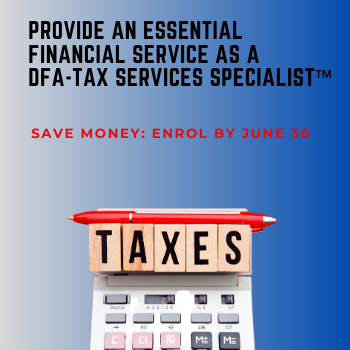Last updated: June 17 2020
The CERB Tax Quagmire

Evelyn Jacks & Beth Graddon
The CERB payments have been extended for an additional 8 weeks to a total of 24 weeks, available under the same eligibility criteria, but with one caveat: Canadians should make an effort to return to work. In addition, those abusing CERB guidelines must repay them to avoid stiff penalties. The resulting broad-based complexity with the CERB will ensure a tax compliance quagmire for recipients next year. Here’s what you need to know:
CERB Tax Reporting: To say the least, the taxable CERB requires good recordkeeping. The government tells recipients on its website that they can expect to receive an information slip about the CERB receipts.
But there is a tax reporting a catch for those who repay the benefits: you will not receive a slip and will have to report this, likely as a deduction. This is problematic, as many people will likely over-report their benefits because they won’t know about the repayment deduction. Tax and financial advisors can help make sure all CERB recipient exercise their tax filing rights.
Possible CERB Penalties: Will CERB recipients face massive fines as reported in the media? The government has promised that Canadians can correct overpayment issues without penalty by repaying the CERB by December 30.
But media reports outline harsh penalties allegedly included in a draft bill that wasn’t passed for intentional fraud. It’s a sign of what could be implemented in the future, with the government sending a clear message that CERB abuse won’t be tolerated.
The penalties they proposed is up to 6-months in jail and/or fines up to $5,000 plus repayment of double the benefit amount received for those who:
- Filed false or misleading benefit claims
- Knowingly failing to declare income for the benefit period
- Receiving a benefit check while knowing they were ineligible to receive it.
These proposed penalties also apply to those who aided someone in committing any of the above.
In addition, the draft bill wanted to make people ineligible to receive the CERB under the following conditions:
- Failing to return to work when called back by their employer (provided it’s reasonable to do so)
- Failing to resume self-employment when it is reasonable to do so
- Declining a reasonable job offer when they are able to work
How would this be policed? During the June 16 CERB extension announcement Trudeau stated that beginning July 5, CERB recipients must sign an attestation acknowledging that the government wants them to work.
That plus the opening of the CERB “snitch line” demonstrates that the CRA is prepared to step up their audit activity and ensure the emergency relief benefits aren’t abused – one way or another!
Additional educational resources: Learn an essential service to help CERB recipients and others throughout the claim period and in tax season 2021. Earn your credentials to become a DFA-Tax Services Specialist™, and provide the tax guidance Canadians need now more than ever.
COPYRIGHT OWNED BY KNOWLEDGE BUREAU INC., 2020.
UNAUTHORIZED REPRODUCTION, IN WHOLE OR IN PART, IS PROHIBITED.

